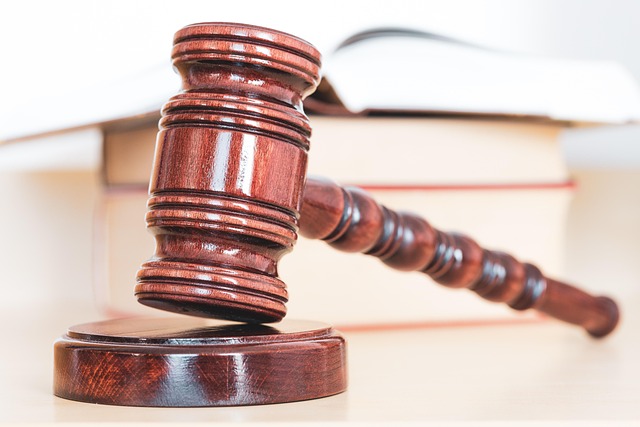The Securities and Exchange Commission (SEC) is instrumental in maintaining market integrity through its pivotal role in securities law enforcement. It leverages advanced data analytics, including algorithms and machine learning, to detect fraud and manipulation. By employing strategic legal proceedings and collaborating with other regulators, the SEC disrupts illegal activities, sets precedents, and restores fairness, ultimately fostering trust in financial markets.
The financial world, despite its complex web of transactions, is not immune to criminal activities. This is where finance crime probes step in, with a particular focus on the Securities and Exchange Commission (SEC) and its crucial role in securities law enforcement. From uncovering fraud through robust investigative powers to leveraging data analytics as modern tools, this article explores key aspects of the SEC’s efforts to maintain market integrity, protect investors, and ensure fair practices in the ever-evolving financial landscape.
- Uncovering Fraud: SEC's Investigative Powers
- Market Integrity: Enforcing Securities Laws
- Regulatory Collaboration: Protecting Investors
- Data Analytics: Modern Tools for Crime Probes
Uncovering Fraud: SEC's Investigative Powers

The Securities and Exchange Commission (SEC) plays a pivotal role in securities law enforcement, acting as a vigilant guardian against fraud within the financial markets. With extensive investigative powers, the SEC has the authority to delve into complex schemes, unraveling layers of deception for his clients. Their mandate extends beyond protecting individual investors; it safeguards the integrity of the entire financial system. Through rigorous probes, they expose and penalize wrongdoers, ensuring fair practices in the securities industry.
The commission employs a multifaceted approach, utilizing its ability to gather evidence, conduct interviews, and analyze financial records. This process often involves navigating intricate financial networks, which require a keen understanding of market dynamics. The SEC’s expertise lies not only in uncovering fraudulent activities but also in holding perpetrators accountable, thereby fostering trust within the philanthropic and political communities that rely on transparent financial dealings.
Market Integrity: Enforcing Securities Laws

Maintaining market integrity is paramount to ensuring fairness and transparency in financial markets. At the forefront of this effort stands the Securities and Exchange Commission (SEC), which plays a pivotal role in enforcing securities laws. The SEC acts as a vigilant guardian, investigating and prosecuting violations that could undermine the stability and trustworthiness of the financial system. Its mandate includes preventing white-collar and economic crimes, such as fraud, insider trading, and market manipulation.
Through its enforcement actions, the SEC not only deters potential wrongdoers but also sends a strong message about the consequences of breaking the law. The agency’s goal is to protect investors by upholding the integrity of financial markets. This involves meticulous oversight, robust legal proceedings, and the ultimate pursuit of complete dismissal of all charges against individuals or entities found to have acted in violation of securities laws, thereby restoring fairness and confidence in the system for his clients.
Regulatory Collaboration: Protecting Investors

In the intricate landscape of financial crime investigations, regulatory collaboration plays a pivotal role in safeguarding investors and maintaining market integrity. The Securities and Exchange Commission (SEC) stands as a cornerstone in this effort, leveraging its extensive powers to enforce securities law and protect the public from fraudulent activities. With an unprecedented track record in high-stakes cases, the SEC’s strategic approach involves coordinated efforts with other regulatory bodies, fostering an environment of accountability and transparency.
Through its enforcement actions, the SEC not only disrupts illegal schemes but also sets precedents that strengthen the legal framework. This includes a range of measures from administrative proceedings to jury trials, ensuring that wrongdoers face severe consequences. The agency’s proactive stance has been instrumental in tackling complex financial crimes, making it a key player in preserving the stability and trustworthiness of the global markets.
Data Analytics: Modern Tools for Crime Probes

In the modern era of complex financial transactions, data analytics has emerged as a powerful tool in crime probes, especially for securities law enforcement. The Securities and Exchange Commission (SEC) plays a pivotal role in this regard, leveraging sophisticated analytical techniques to uncover fraud, market manipulation, and other illicit activities. By employing advanced algorithms and machine learning models, the SEC can sift through vast datasets, identify patterns, and pinpoint suspicious activities that might otherwise go unnoticed. This enables them to take proactive measures, ensuring a robust and effective enforcement strategy.
The SEC’s involvement in securities law is crucial, as it not only facilitates the detection of financial crimes but also promotes transparency and fairness in the market. Their use of data analytics allows for a more efficient process, enabling them to avoid indictment or, in some cases, secure a complete dismissal of all charges against individuals or entities engaged in white-collar crime. This not only saves resources but also highlights the importance of technological advancements in maintaining a level playing field in the financial sector.
The Securities and Exchange Commission (SEC) plays a pivotal role in maintaining market integrity through its robust investigative powers and enforcement of securities laws. By leveraging data analytics, the SEC can more effectively uncover fraud and protect investors. Regulatory collaboration among institutions further strengthens this effort, ensuring that financial crimes are met with swift and decisive action. The integrated use of modern tools and consistent oversight from the SEC is crucial in preserving a fair and efficient financial landscape.






